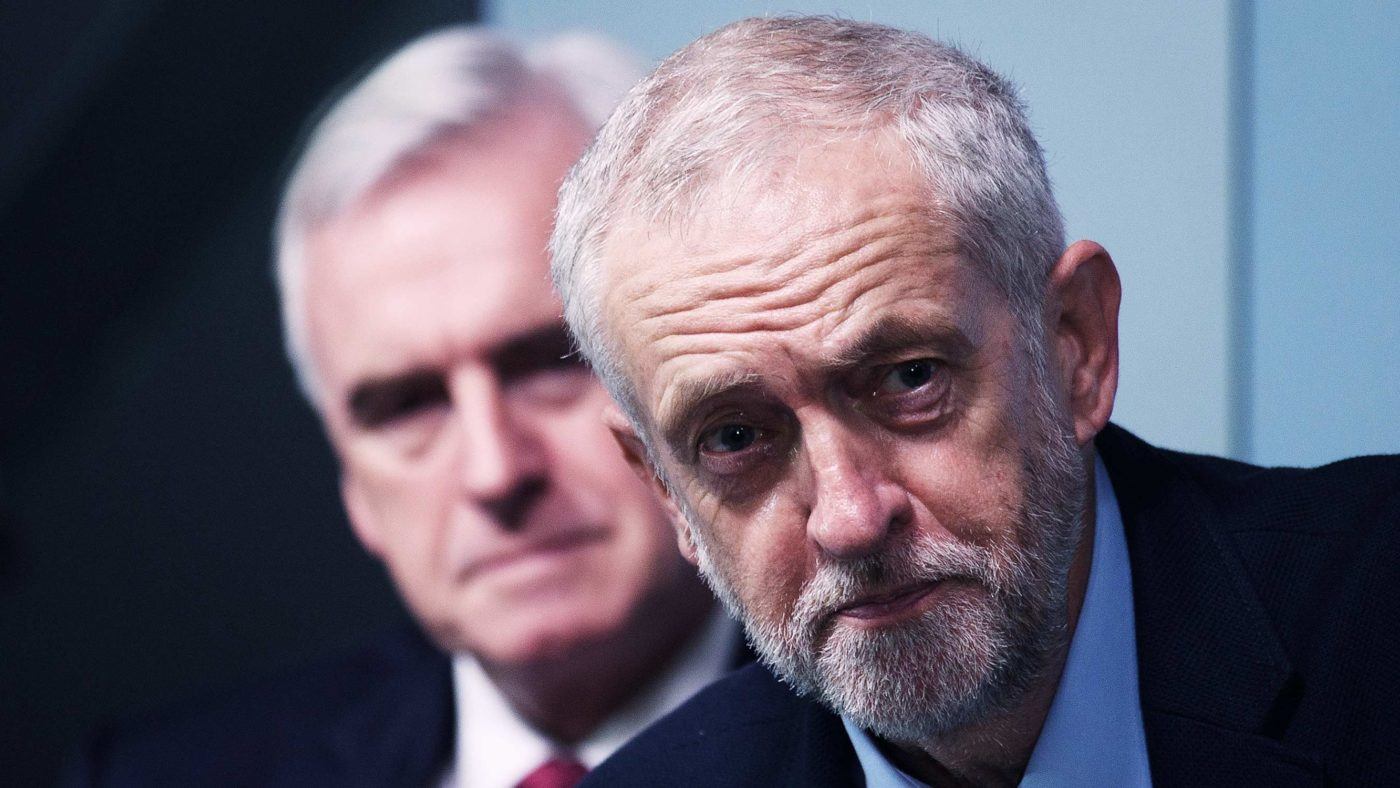For some people, Emmanuel Macron’s triumph in France was a moment to savour: a victory for reason over prejudice. Yet for others, it was a cause for deep alarm that as much as a third of the French electorate had cast its vote for a candidate from the far-right.
Here in Britain, something equally significant, and alarming, is happening. Jeremy Corbyn is rising in the polls, and the Labour Party with him. At the end of March, just 13 per cent of Britons told YouGov he was better equipped than Theresa May to be Prime Minister. Today, that stands at 30 per cent.
For the Corbynistas, bracketing their hero with Marine Le Pen may seem like a mortal insult. But it is clearly the case that Corbyn and those around him belong to a political tradition that is, as Chris Deerin wrote recently on CapX, outside the mainstream not just of British politics, but of Labour politics.
To grasp how strange the situation is, forget about the fact (much bandied about on the Left) that a sole Tory councillor is a repentant IRA member and imagine that Theresa May herself had spent the past 20 years sitting on the back benches, serially voting against her party. Imagine that she had happily cheered on Le Pen (Sr), had spent the 1980s defending and occasionally glad-handing the members of the Ulster Volunteer Force.
Imagine that Lynton Crosby had, in order to run the Tory campaign, resigned his position as head of the English Defence League, or even the British National Party. Imagine that Philip Hammond had called for direct action to protect capitalism – for the unions to be abolished and the workers cowed by force. Imagine that Amber Rudd had said that every UVF attack was a victory for the Union.
They would, quite rightly, be reviled. Yet Andrew Murray, the old comrade of Corbyn’s brought in to help run Labour’s campaign, is an outright Communist who defends North Korea, perhaps the worst regime on the planet (see Oliver Kamm’s magnificent CapX piece for the grim details). John McDonnell has called for an insurrection against capitalism, as well as praising the actions of the IRA. Diane Abbott said every defeat of the British state in Northern Ireland was a victory. They have not only supported some of the worst people and ideas in 20th-century history, but in many cases are still doing so.
It was Andrew Cooper – our guest on this week’s CapX podcast – who came up with the idea that the Tories were seen as “the nasty party”, a phrase later popularised by Theresa May.
Despite various attempts at detoxification, the Conservatives are seen by large parts of the country as nasty but necessary – a party who love the rich and hate the poor, who win points for competence but lose them for compassion.
The counterpart to this, of course, is that Labour are seen as the nice party. They’re the ones who get outraged about food banks and bankers’ bonuses, who want to take from the wealthy and give to the ordinary people. Just look at Jeremy Corbyn, with his silvery beard and pots of home-made jam. He may not seem like a potential Prime Minister. But he certainly appears to be a decent sort.
This nasty/nice dichotomy, of course, is fundamentally flawed. As Daniel Hannan pointed out on CapX this week, Communism was just as great an evil as fascism, if not more so. Countries that adopt unrestrained free-market policies may end up with more inequality. But they also end up with more prosperity. Countries that adopt unrestrained socialist policies tend to end up looking like Venezuela (an experiment much admired by Corbyn and those around him). The Labour manifesto, for example, is full of nice things to spend money on. But the extra taxes, higher debt and slower growth would be very nasty indeed.
Yet it is this stereotype, I would argue, that explains much of what is happening at this election.
Yes, the polls may be exaggerated (there are dark rumours in Tory circles of Momentum infiltration of the YouGov polling panels, and few on the doorstep are reporting a similar surge of enthusiasm). Yet if they are right, it seems that rather than Jeremy Corbyn toxifying the Labour Party, it has decontaminated him and his clique.
The Conservatives are still the overwhelming favourites to win the election. But the fact that a Labour Party led by such people can rise so high in the polls suggests that Britain has precious little cause to be complacent about the state of its democracy.
True, Theresa May has not had the best campaign. But Jeremy Corbyn is arguably the least qualified and most extreme prime ministerial candidate of the past century. At some point, don’t we have to stop blaming the Tories, and start blaming the voters?
This article was taken from CapX’s Weekly Briefing email. Sign up here.


